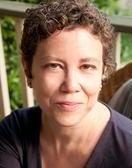
The tragic death of 21-year-old college student Andrew Pochter, killed during protests in Egypt last Friday, hit close to home for more than one reason. Pochter was from the Maryland suburbs of DC, and attended schools in the same school system as my college-aged daughter. But also, like me, he was the child of a Christian mother and a Jewish father. I believe Pochter displayed the positive hallmarks of that interfaith heritage: he devoted his life to building metaphorical bridges. He had the desire and ability to immerse himself in the experience of the “other.” According to friends and family, he had extraordinary empathy, a drive to transcend boundaries, and a gift for seeing connections.
Pochter had studied Arabic while living in Morocco, and had intended to acquire additional Arabic dialects in Egypt and Jordan. On a Facebook memorial page, his family writes of Pochter’s plans to live and work in the Middle East “in the pursuit of peace and understanding.”
Meanwhile, I am shaking my head as I watch a familiar process of media confusion over his religious identity unfold. Do they label him Jewish? Christian? Here is how Kenyon College, where Pochter would have been a junior in the fall, described his religious journey: “Raised a Christian, he was reared in a home with both Christian and Jewish parents, said his mother, Elizabeth Pochter, and he had become interested in his Jewish heritage.” It did not surprise me at all to learn that Pochter was a religious studies major, or that he had become a leader in Kenyon’s Hillel House. In reporting on children raised in interfaith families for my upcoming book, I noted a tendency for interfaith children to explore and study religion at the university level.
In some Jewish media, Pochter is now being described as Jewish, with no reference to his interfaith family. At the same time, the all-too familiar bullying comments immediately cropped up in the comment sections, denying that a patrilineal Jew can be Jewish, or opining that if he was Jewish he should have been studying Hebrew, not Arabic.
Meanwhile, one New York Times article declined to characterize the complexity of Pochter’s religious identity, by avoiding describing him as either Jewish or Christian, or from an interfaith family. On Twitter, one writer found the fact that the paper of record “doesn’t mention he was Jewish” to be “odd.”
I don’t find it odd. Perhaps the New York Times did not want to reduce Pochter’s complexity to a single religious label of “Jewish” when he is no longer here to declare or describe his own identity. The identity of people from interfaith families can be fluid, flexible, multi-layered, vibrant. Sadly, we will never learn where Andrew Pochter’s journey might have taken him, geographically and spiritually. What we know is that he was not afraid to reach across the divides between religions, between countries, between people. May his memory be for a blessing, and inspire us all to work harder for peace and reconciliation around the world.

